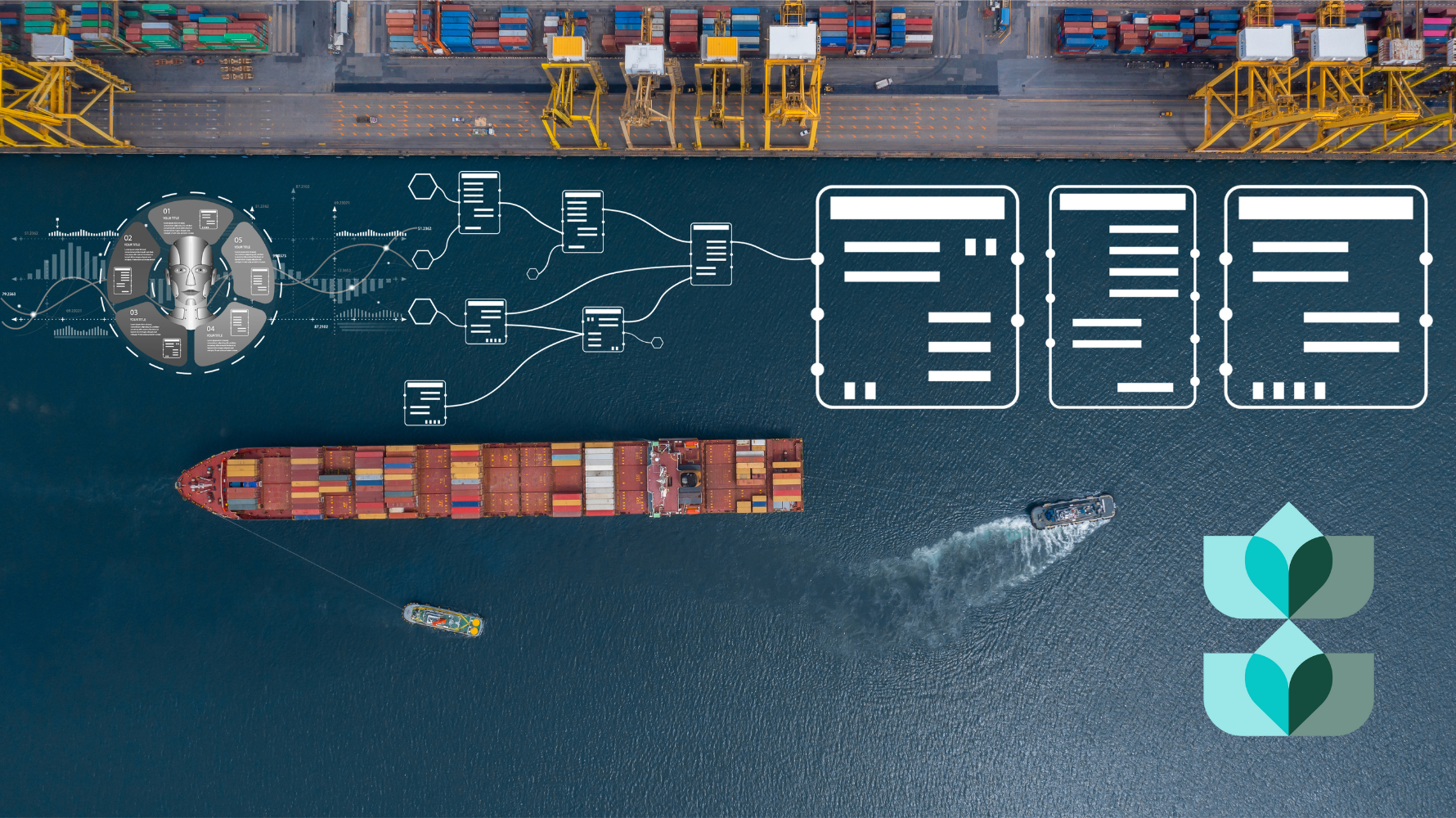Logistics software has become an indispensable tool for businesses seeking to streamline their processes, optimize performance, and stay competitive in an ever-evolving market. In this comprehensive guide, we will dive deep into the world of logistics software, exploring its benefits, features, and the impact it can have on your business.
What is Logistics Software?
Logistics software is a specialized business tool designed to manage and optimize various elements of the production process, including the transportation of raw materials, inventory management, warehouse operations, and shipping of finished products. The primary objective of logistics software is to enhance profit margins and reduce cycle time, providing businesses with a competitive edge in the market.
Focus on Transportation
A key aspect of logistics software is its focus on transportation management. Given the significant costs associated with transportation, particularly in light of rising shipping and fuel prices, logistics software enables businesses to automate the management of vast quantities of transportation-related data. This allows for data-driven decision-making, ensuring that the most cost-effective and efficient transportation options are utilized.
Integration with Supply Chain Management
Logistics software is often closely integrated with supply chain management systems, working together to achieve common goals of boosting efficiency, minimizing costs, and improving customer satisfaction. From managing the flow of materials and information to overseeing the entire production cycle, logistics software plays a vital role in the overall success of a business.
.jpg?width=1580&height=976&name=Copy%20of%20Copy%20of%20Copy%20of%20Copy%20of%20Process%20Manufacturing%20ERP%20(4).jpg)
The Birth of Logistics Software
Logistics software has been used for several decades, evolving alongside technological advancements and the growing complexity of supply chain management. While manual methods were prevalent in the past, the advent of computers and software applications has significantly transformed logistics operations.
In the 1960s and 1970s, logistics software emerged as computerized systems were introduced to automate certain aspects of logistics management. These early systems focused on inventory control, order processing, and basic transportation management functions.
As technology advanced, logistics software evolved to incorporate more sophisticated features and capabilities. In the 1980s and 1990s, enterprise-wide logistics software solutions emerged, integrating various logistics functions within a single system. These systems allowed for improved coordination and visibility across the entire supply chain.
With the rise of the internet and e-commerce in the late 1990s and early 2000s, logistics software became even more critical in managing the complex logistics requirements of online businesses. Integration with electronic data interchange (EDI) and real-time tracking systems became essential for efficient logistics management.
Today, logistics software has become an integral part of modern supply chain management. It encompasses many functionalities, including inventory management, order processing, transportation management, warehouse management, demand forecasting, analytics, and more. Logistics software solutions continually evolve to keep up with the changing demands of global trade, e-commerce, and customer expectations.

Benefits of Using Logistics Software
Implementing logistics software can yield numerous advantages for businesses, some of which include the following:
Faster Delivery
By streamlining the delivery process and selecting the most efficient shipping services, logistics software can significantly reduce production and delivery times. This results in quicker product delivery to customers, enhancing customer satisfaction and brand reputation.
Minimized Human Errors
Logistics software automates complex calculations and data processing tasks that were once prone to human error. By eliminating manual processes and relying on advanced algorithms, logistics software ensures that costly mistakes are avoided.
Cost Savings
Logistics software can help businesses save money by comparing rates of various delivery and shipping services, allowing them to choose the most cost-efficient options. Furthermore, the software can identify the most effective transportation methods for a business's specific products, further contributing to cost savings.
.jpg?width=1580&height=976&name=Copy%20of%20Copy%20of%20Copy%20of%20Process%20Manufacturing%20ERP%20(18).jpg)
Types of Logistics Software
There are several types of logistics software available in the market, each catering to specific business needs. Some of the most common types include:
Enterprise Resource Planning (ERP)
ERP software automates various back-office functions such as record-keeping, accounting, regulatory compliance, and IT services. It is designed to streamline and unify multiple business processes, providing a comprehensive solution for businesses.
Integrated Supply Chain Management (SCM) Suites
Integrated SCM suites manage information about raw materials sourced from external suppliers. These solutions help businesses optimize their supply chain processes, ensuring timely and efficient delivery of materials and goods.
Warehouse Management System (WMS)
WMS software enables businesses to efficiently manage warehouse operations, from when materials or goods enter the warehouse until they are dispatched. This includes inventory control, order processing, and shipping management.

Key Features of Logistics Software
When evaluating logistics software, it is essential to consider the following features:
Freight Dispatch Management: An effective logistics software solution should offer comprehensive freight dispatch management capabilities, enabling businesses to efficiently plan and coordinate the movement of goods from point A to point B.
Freight Visibility Management: Freight visibility is crucial for ensuring efficient and cost-effective transportation processes. Logistics software should provide high-quality data on freight movements, allowing businesses to make informed decisions regarding shipping and route mapping.
Real-Time Shipment Tracking: Logistics software should offer real-time shipment tracking capabilities, providing businesses and their customers with up-to-date information on the status of their shipments. This includes automated notifications and GPS-based tracking.
Fuel Management: Fuel management is a critical aspect of logistics software, enabling businesses to monitor fuel consumption, control fuel purchases, and ensure the security of their transportation operations. This includes tracking fuel transactions, monitoring inventory levels, and generating reports on fuel usage.
Engine Optimization: Logistics software should feature a robust engine optimization system capable of managing various aspects of the transportation process, such as vehicle and route selection, contract management, and carrier allocation. Additionally, the software should be able to create alternative route plans in case of unforeseen obstacles or restrictions.
Carrier Contract Management: Effective logistics software should enable businesses to consolidate and manage all carrier contracts in a central database, allowing for more efficient contract negotiation and alignment with business objectives.
Hauler Management: Hauler management features in logistics software allow businesses to track and pay haulers who successfully deliver shipments. This includes managing hauler personal data, distance covered, and performance metrics.
Digital Billing and Payments: Logistics software should offer digital billing and payment solutions, streamlining the management of financial transactions and reducing the risk of errors and fraud. This includes generating electronic invoices, processing payments, and tracking financial documentation.
Reporting and Analytics: A robust logistics software solution should provide comprehensive reporting and analytics capabilities, enabling businesses to make data-driven decisions and optimize their logistics processes. This includes visual communication tools, dashboards, and maps that display critical transportation data.
Security Management: Security is a paramount consideration when choosing logistics software. Solutions should offer robust security features, including data breach detection, unauthorized access prevention, and secure user authentication.
-1.jpg?width=1580&height=976&name=Copy%20of%20Copy%20of%20Copy%20of%20Process%20Manufacturing%20ERP%20(8)-1.jpg)
Choosing the Right Logistics Software for Your Business
Selecting the ideal logistics software for your business requires careful consideration of your specific needs, objectives, and budget. Some factors to take into account include:
Customization and Scalability
Ensure the logistics software you choose is customizable and scalable, allowing for seamless integration with your existing systems and processes. This will enable you to adapt the software to your specific requirements and facilitate future growth.
User-Friendliness
Choose a logistics software solution that is user-friendly and offers an intuitive interface. This will make it easier for your team to adopt the software and maximize its benefits.
Vendor Support and Training
Opt for a logistics software provider that offers comprehensive support and training services, ensuring that your team is well-equipped to utilize the software effectively.
Cost and Return on Investment (ROI)
Consider the overall cost of the logistics software and its potential ROI. While an affordable solution may be tempting, it is essential to evaluate the long-term benefits and ensure that the software will provide a positive return on your investment.

Should Companies Consider Implementing Logistics Software?
Companies can greatly benefit from using logistics software to streamline and optimize their supply chain and logistics operations.
Here are some reasons why companies should consider using logistics software:
Improved Efficiency
Logistics software automates manual processes and streamlines operations, improving efficiency. It enables companies to manage and track inventory levels, process orders, optimize transportation routes, and monitor delivery schedules more effectively.
Enhanced Visibility and Control
Logistics software provides real-time visibility into supply chain operations, enabling companies to track the movement of goods, monitor inventory levels, and respond to changes or disruptions quickly. This visibility improves decision-making and allows for proactive management of logistics activities.
Inventory Optimization
Logistics software helps companies optimize their inventory levels by providing accurate demand forecasting, inventory tracking, and analysis of stock levels. This ensures that inventory is maintained optimally, reducing carrying costs and minimizing stockouts or overstock situations.
Customer Satisfaction
Efficient logistics management facilitated by software enables companies to meet customer expectations regarding on-time delivery, order accuracy, and product availability. This can lead to improved customer satisfaction, loyalty, and retention.
Scalability
Logistics software can accommodate the growing needs of a company as it expands and handles larger volumes of shipments. It provides scalability to adapt to changing business requirements and enables companies to handle increased order volumes and more complex logistics operations.
Integration with Business Systems
Logistics software can integrate with other business systems, such as enterprise resource planning (ERP) systems, customer relationship management (CRM) systems, and e-commerce platforms, allowing for seamless data exchange and improving overall operational efficiency.
While there may be costs associated with implementing and maintaining logistics software, its benefits in terms of efficiency, cost savings, visibility, and customer satisfaction can far outweigh the initial investment. However, it's important for companies to assess their specific needs, evaluate available software options, and choose a solution that aligns with their logistics requirements and business goals.
.jpg?width=1580&height=976&name=Copy%20of%20Copy%20of%20Copy%20of%20Copy%20of%20Process%20Manufacturing%20ERP%20(3).jpg)
Going It Alone: The Risk of Not Leveraging Logistics Software
When companies do not use logistics software or rely on manual processes for their logistics management, several challenges and drawbacks can arise.
Here are some potential consequences of not using logistics software:
Inefficient Operations: Manual logistics management processes can be time-consuming, error-prone, and inefficient. Companies may struggle to keep track of inventory levels, process orders manually, manage transportation routes, and coordinate with suppliers, resulting in delays, errors, and increased operational costs.
Limited Visibility: Without logistics software, companies may lack real-time visibility into their supply chain operations. This makes it difficult to track shipments, monitor inventory levels accurately, and identify potential bottlenecks or issues in the logistics processes. Lack of visibility can lead to poor decision-making, customer dissatisfaction, and disruptions in the supply chain.
Increased Costs: Manual logistics management often involves higher costs. Inaccurate inventory tracking can lead to overstocking or stockouts, resulting in unnecessary carrying costs or lost sales opportunities. Inefficient transportation planning can lead to higher freight costs and suboptimal route choices. These cost inefficiencies can impact the company's bottom line.
Limited Scalability: Manual logistics processes may struggle to scale with the company's growth. As the volume of shipments and complexity of logistics operations increase, manual processes become more challenging to manage effectively. Companies may face difficulties in handling larger order volumes, coordinating multiple suppliers, or expanding into new markets without the support of logistics software.
Lower Customer Satisfaction: Inefficient logistics processes can result in delayed deliveries, incorrect shipments, and poor customer service. This can lead to dissatisfied customers, decreased customer loyalty, and potential damage to the company's reputation. Meeting customer expectations for on-time delivery, order accuracy, and transparency becomes more challenging without the capabilities provided by logistics software.
Lack of Data Analysis and Optimization: Manual processes often lack the ability to analyze data and derive actionable insights for optimizing logistics operations. Without logistics software, companies miss out on the opportunity to leverage advanced analytics, demand forecasting, and optimization algorithms to improve efficiency, reduce costs, and drive continuous improvement in their logistics processes.
In summary, not using logistics software can result in inefficient operations, limited visibility, increased costs, scalability challenges, lower customer satisfaction, and missed opportunities for optimization. Adopting logistics software can help companies overcome these challenges and gain a competitive edge in today's complex and fast-paced business environment.

What Does It Cost to Implement Logistics Software?
The cost of logistics software can vary depending on several factors, including the features and functionalities offered, the size and complexity of the company's logistics operations, the number of users, and the deployment model (on-premises or cloud-based).
While it is challenging to provide specific pricing information as it varies among software providers, it's important to consider the following cost components associated with logistics software:
Licensing or Subscription Fees
Logistics software is typically offered through licensing or subscription models. The cost can range from a one-time upfront fee for perpetual licenses to monthly or annual subscription fees for cloud-based solutions. The pricing structure may be based on the number of users, the scope of functionalities needed, or the volume of shipments.
Implementation and Customization
Depending on the complexity of the company's logistics processes and the desired level of customization, additional costs may be involved for implementing and configuring the logistics software to meet specific business requirements. This may include data migration, system integration, and customization of workflows and reports.
Training and Support
To ensure the successful adoption and optimal use of logistics software, companies may need to invest in training their staff on how to use the software effectively. Ongoing technical support and maintenance services may also be provided by the software vendor, often at an additional cost.
Infrastructure and Hardware
If the logistics software is deployed on-premises, there may be costs associated with the required hardware infrastructure, such as servers and networking equipment, as well as ongoing maintenance and upgrades.
It's worth noting that while logistics software may involve upfront costs, it can also deliver significant cost savings and operational efficiencies in the long run. By optimizing logistics processes, reducing manual efforts, and improving decision-making, companies can achieve a positive return on investment (ROI) through reduced transportation costs, inventory carrying costs, and improved customer satisfaction.
It's recommended that companies evaluate different software providers, compare their offerings, and request pricing information tailored to their specific needs. Additionally, considering the potential benefits and cost savings that logistics software can bring can help make an informed decision about the investment.
-1.jpg?width=1580&height=976&name=Copy%20of%20Copy%20of%20Copy%20of%20Process%20Manufacturing%20ERP%20(9)-1.jpg)
Is Logistics Software Easy or Difficult to Implement?
Implementing logistics software can vary in difficulty depending on factors such as the complexity of the software, the size and structure of the company, the readiness of existing systems and data, and the level of customization required. While the implementation process can pose challenges, proper planning, preparation, and collaboration can help ensure a successful implementation.
Here are some factors to consider:
Requirements Analysis: It is crucial to conduct a thorough analysis of your company's logistics requirements and align them with the capabilities of the software. This includes identifying key pain points, desired functionalities, and integration needs. Clear and well-defined requirements will guide the implementation process.
Change Management: Introducing new logistics software often requires a change in processes and workflows. Adequate change management practices, including communication, training, and stakeholder engagement, can help employees understand the benefits, address resistance, and facilitate a smooth transition.
Data Migration and Integration: Migrating data from existing systems to the new software and integrating it with other business systems can be complex. It requires careful planning, data cleansing, and mapping to ensure data accuracy and consistency across systems. Collaborating with IT teams and software providers can help streamline this process.
Customization and Configuration: Depending on your specific requirements, the logistics software may need to be customized or configured. This could involve tailoring workflows, reports, and interfaces to match your business processes. Clear documentation and collaboration with the software vendor can help ensure accurate customization.
Training and Support: Providing comprehensive training to users is essential for successful adoption and effective use of the software. The software provider may offer training programs, documentation, and support resources to assist with user onboarding. It's crucial to allocate sufficient time and resources for training to ensure user proficiency.
Testing and Validation: Thoroughly testing the software's functionality, integration, and data accuracy is important before going live. This helps identify and resolve any issues or discrepancies, ensuring the system performs as expected. User acceptance testing and validation processes should be established and followed.
Ongoing Maintenance and Support: Once the software is implemented, it's important to establish a support structure with the software provider for ongoing maintenance, updates, and troubleshooting. Regularly reviewing the system's performance and addressing any issues that arise will help maintain optimal functionality.
Overall, implementing logistics software requires careful planning, effective communication, collaboration with stakeholders and software providers, and diligent execution. While challenges may arise, with proper project management and a well-defined implementation strategy, companies can successfully deploy and leverage logistics software to enhance their operations.

Does ERP Include Logistics Software?
The short answer: yes. Enterprise Resource Planning (ERP) systems often include logistics software as a core component. Logistics software within an ERP system is designed to manage and optimize various aspects of the supply chain and logistics operations of an organization.
Logistics software within an ERP system typically includes functionalities such as inventory management, order management, warehouse management, transportation management, and tracking and tracing of goods. It helps organizations streamline their logistics processes, improve efficiency, reduce costs, and enhance overall supply chain visibility and control.
By integrating logistics software into an ERP system, businesses can achieve better coordination and collaboration across different departments and functions, such as procurement, production, sales, and distribution. This integration allows for seamless data sharing and real-time information exchange, enabling organizations to make informed decisions, optimize inventory levels, improve order fulfillment, and ensure timely delivery of goods to customers.
However, it's important to note that while ERP systems often include logistics software, not all logistics software is part of an ERP system. There are standalone logistics software solutions available in the market that can be used independently or integrated with other business systems as needed.
Conclusion
Logistics software is a powerful tool that can revolutionize your business's supply chain management processes. By carefully considering the features, benefits, and types of logistics software available, you can make an informed decision and choose the best solution for your business. With the right logistics software in place, you can optimize your operations, reduce costs, and enhance your competitive edge in the market. Inecta has been helping businesses implement highly advanced logistics software, elevating their transportation capabilities and supply chain efficiency. Specializing in the food industry, Inecta offers several solutions that include comprehensive logistics functionalities designed to optimize business processes. If you're interested in learning more about how Inecta can help elevate you business's logistics operation, schedule a demo today!











Free Valuable Resource!
3 simple steps to find your Food ERP
Free Valuable Resource!
3 simple steps to find your Food ERP
*We will never sell your information. Keeping your data and privacy secure is our highest concern.